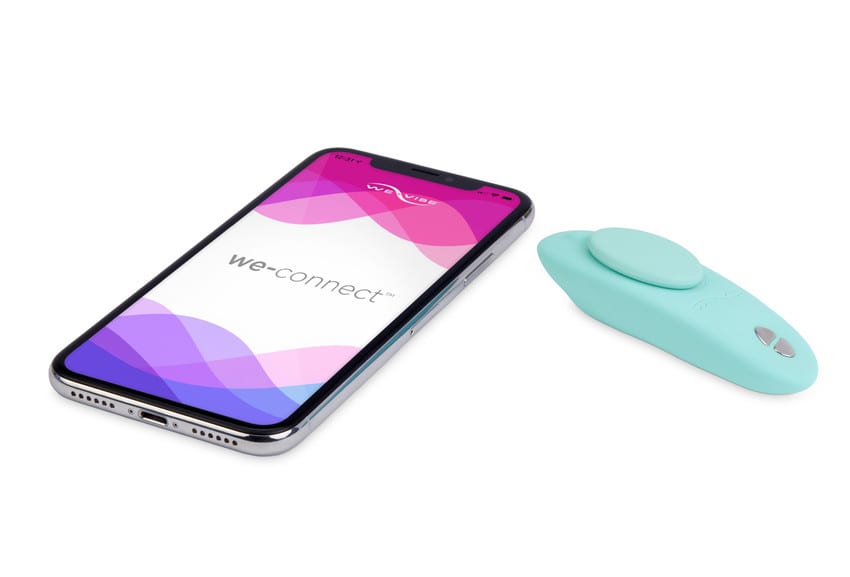Let’s talk about what gives women pleasure and put sex-positivity on the table.
That was the focus of conversation when Womanizer and WeVibe launched their two new game-changing vibrators, the DUO and Moxie.
Guest speaker She Said Editor and sex-positive journalist Nadia Bokody said at the launch held at Sydney’s Chiswick restaurant that “ten years ago, this event wouldn’t have happened.” Why? Well, that’s easy – women don’t often gather around a table to discuss sexual pleasure, sexual frustration, and masturbating at work.
Despite this, interest in sex and sexual pleasure is at all all-time high. The sex toy industry is currently sitting at $15billion in sales with women and the LGBTQI community leading growth in the category.
Suffice to say; sex toys have gotten more sophisticated and more design-oriented since they entered the market in the 1970s.
They are also becoming more personalised. For instance, the DUO is a new hybrid “rabbit” style vibrator that uses scaleable vibrations, unique-Pleasure Air Technology, and a flexible vibrator head. These features target all anatomies, pleasure points, and preferences (reading up on it I started to think of the DUO as a bedroom Swiss-Army Knife).
Talking to friends about toys, the number one complaint was that they start too strong and have a one-size-fits-all approach to women’s pleasure. Both Womanizer and We-Vibe’s newest offerings have 12 intensity levels. For DUO clitoral stimulation has 12 intensity levels while the G-Spot has ten varied vibration patterns – this variety and capacity for specificity makes the toy feel more like an extension of your own body.
Best of all? The multiple functions can be controlled separately – meaning women can effectively build their own orgasm, adding on as they go.

Some Unsexy Sex-Education:
Nadia Bokody spoke about how exploring her sexuality after her divorce and learning to ask for what she wanted in the bedroom, transformed her confidence.
Bokody admitted her sexual hang-ups harked back to her days at school. On reflection, she said that while girls receive education regarding the risk of unwanted pregnancies and STD’s, there is little information provided about actually enjoying sex. “This can have serious consequences for women’s sexual self-esteem and the happiness of their relationships,” she added.
Her words made me recall my own early experiences with sex-education. Not long into my first serious relationship in high school, I visited a sexual health clinic. I was experiencing pain during sex – I believe the non-clinical term for it might have been “chafing.” The stern clinician rolled her eyes, exclaimed “USE LUBE” at what felt like 200 decibels and foisted a bunch of condoms in my hand. I stumbled out of her office convinced every other terrified teenager in the waiting room had overheard her indictment of my dry vagina. She didn’t ask me whether I was enjoying sex with my boyfriend. She didn’t ask whether we were practicing foreplay. The takeaway was that if things weren’t working, I should lube up and get on with it.

The passage of time has taught me that lube is far less important than communication, trust, and of course, foreplay. But for a long time, I was convinced that sex wasn’t for me. Instead, it was something I had to fake my way through lest potential partners catch wind of my frigidity. And as it turns out, faking it was a magic bullet of resentment, fear, and frustration that made quick work of my relationships.
We don’t know what we don’t know!
Articles about how to have good sex often focus on asking for what you want. This advice contains the assumption that people are born knowing what they want. Where we are meant to have picked up this information is a mystery.
Most sexologists agree that solo-masturbation is linked positively to feelings of increased self-confidence, autonomy, and assertiveness in the bedroom. However, not all women know how to masturbate or engage in it with any frequency. In 2009 the University of Chicago Study found that only 38% of women reported masturbating in the last 12 months, let alone frequently. There were many reasons for women abstaining, amongst them trauma, religious views, and pure squeamishness. However, there was also a large proportion of women who said that they were interested in masturbating, but didn’t know how.
Fortunately, masturbation is an area where it is never too late to learn whether you invest Womanizer and We-Vibe products or decide to take a more hands-on approach.
Communication is Key:

We-Vibe issued a study of couples’ sex lives and communication styles. The study found that couples who use sex toys communicate more generally, so they have invested in toys that are designed to encourage conversation.
The Moxie by We-Vibe is a wearable vibrator that allows for hands-free clitoral stimulation. This product is for couples and especially couples navigating long distance relationships.
Sexologist and We-Vibe Ambassador Dr. Jessica O’Reilly says that the formula for passion in relationships means creating a solid foundation of love, security, and trust. The Moxie clips into underwear easily with a sturdy magnetic fastener. The We-Vibe can then be controlled via remote or the “We-Vibe” app for long-distance couples. The ten vibration modes can be translated into a playlist for those games to hand the reigns to their partner. O’Reilly notes that the Moxie is about “breaking the rules together.”
This breaking the rules creates a space where “couples’ can deepen bonds as they share a private, playful secret”.
Our Sex Lives Are Our Real Lives:

Thinking about sex as something a woman can “take” as well as “give” has changed her life, said Bokody. She recommended we all explore our likes and dislikes. And ask for them to be met. She encourages us all to observe how the act of asking “filters into all aspects of your life.”
This made sense to me. After all, our sex lives are our real lives.









